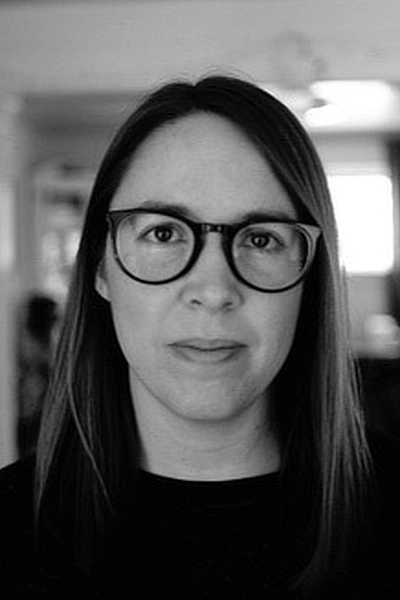
“Storytelling is what makes us human,” both news headlines and pastors seem to tell us over and over again. But what does it mean to say that stories are the defining feature of humanity? And what if narrative is not the only, or even the best, way of relating to the world?
Stories, Aristotle tells us, have a beginning, a middle, and an end. And we love to skip to the end! Flipping to the last page of a book gives us the satisfaction of tying up loose ends; it makes what is invisible, seen, what is unknown, known. In fact, the word narrative comes from the Indo-European root gno, “to know.”
I, too, love stories. And I yearn for the twist ending that scripture tells us will address the world’s injustice. And yet, my day-to-day life seems to involve a lot more of the unresolved than the resolved. I don’t know all the answers, and I don’t know where God’s will will take me next.
In these moments of unknowing, I turn to poetry.
Rather than rushing to an answer, poetry allows us to ask questions. Unlike narrative, it doesn’t require a neat ending. See, for example, how Gerard Manley Hopkins expresses his unvarnished grief and struggle with sin in his unconventional sonnet, “I Wake and Feel the Fell of Dark, Not Day.” He begins with doubt that his prayers are being heard:
“what black hours we have spent / […] And my lament Is cries countless, cries like dead letters sent To dearest him that lives alas! away.”
Sonnets require a “turn” (the volta) that shifts the poem from a question to an answer or a problem to a solution. In Hopkins’ poem, we might expect him to shift from these unanswered prayers to hope in Christ. Instead, he ends by highlighting how his identity as a sinner is shared by the rest of humanity: “I am gall, I am heartburn” and “I see / The lost are like this […] their sweating selves.” This feeling of shared humanness, conveyed through visceral description, (“their sweating selves”!), is exactly what poetry gives us. It provides a space to articulate the weirdly specific experiences of life, only to reveal that those feelings are also universal.
In media studies, we often talk about the idea of “affordances.” An affordance is what a particular medium’s features invite us to use it for. One of the affordances of poetry is that it allows us to dwell in a particular moment or feeling. It is often written in the “lyric present”, which uses present-tense verbs to give the reader the feeling of being there. A poem might suddenly turn and look us straight in the eye to say: “you!”
As a poet and scholar of poetry, I find myself wondering what poetry’s affordances can offer the church. Everything around me seems to demand narrative. Even the shape of the church service moves us through the narrative of the Gospel:
- Beginning: we confess our sin, a problem to be solved;
- Middle: the teaching of scripture demonstrates Christ’s victory over sin;
- End: our relationship is restored, and we enjoy communion with God.
Christ knew we would need a weekly reminder that we are part of the ongoing story of God’s work in the world; it is a necessary, life-giving process. And yet, sometimes I feel like the liturgy’s quick movement bends my unresolved anger and grief into a shape I’m not quite ready for.
Early in my walk I thought being a “good Christian” required actively turning my experiences into narratives with happy endings. This attitude influenced my poetry from its very beginning. I was a middle schooler when 9/11 happened, and my teacher tasked us with writing poems in response. I remember writing 3 stanzas expressing my anger and devastation. Upon rereading my draft, I realized I couldn’t, in good conscience, leave my poem on such a depressing note. It needed some hope! I didn’t feel much hope, but in the spirit of “finishing” my poem, I added a final hopeful stanza.
Two decades later, I wish I could tell my middle-school self that the original draft, the one that expressed my grief, was the poem I needed to write (and others needed to read). The idea that everything I wrote needed to move from despair to hope was so ingrained in me that I still remember the shock I felt when I first encountered Psalms that did not have hopeful endings.
Psalm 44 ends with the Psalmist demanding God’s help: “Awake! Why are you sleeping, O Lord? / Rouse yourself! Do not reject us forever!” (v. 23).
In Psalm 88 the psalmist has a “soul full of trouble” (v.3) and feels “overwhelmed” by the waves of God’s wrath (v. 7). He asks disturbing and difficult questions about the afterlife: “Do you work wonders for the dead?” (v.12). Death looms large in the psalmist’s imagination, and the psalm concludes on a devastating note of loneliness: “You have caused my beloved and my friend to shun me; / my companions have become darkness” (v. 18).
Most of the commentaries I’ve encountered on this scriptural poem focus on showing how it “really does have hope” because it calls God “the God of my salvation” in verse 1.
Yes, of course, I want to say. The lament is an act of prayer, and the act of prayer alone is an expression of hope in things not seen. So, rather than rushing to explain why one piece of scripture doesn’t tie itself up in an orthodoxical bow, I want to sit in the darkness with the psalmist just a little longer.
Perhaps poetry’s place is in the larger-scale liturgies of the church calendar, to help us dwell in single emotions across sustained seasons, such as Advent’s hopeful waiting or Lent’s grief and repentance. Poetry invites vulnerability, connection, and present-ness – things the church could use more of right nowOlivia Milroy Evans is an Assistant Professor in the Department of English at Samford. She teaches and writes about poetry, world literature, documentary, and television and serves as the faculty advisor for the Samford Writers Club. She holds an MA from the University of Virginia and a PhD from Cornell University. Originally from North Carolina, she completed a BA at Wake Forest University before teaching literature, rhetoric, and creative writing at a classical Christian high school in Virginia. When she’s not proselytizing for poetry, she enjoys analyzing tv shows with friends, learning to paint, and spending time with her husband, Daniel, and their dogs, Bingley and Darcy.
We invite you to join us for Animate 2024! By registering for Animate, you will have the chance to choose an artistic track that sparks your interest and select from a variety of toolbox classes. Our exceptional Samford Faculty, as well as guest artists who are experts in their respective fields, will be your instructors. The toolbox classes for 2024 include a Creative Writing/Poetry class, taught by the author of this post, Olivia Evans.

